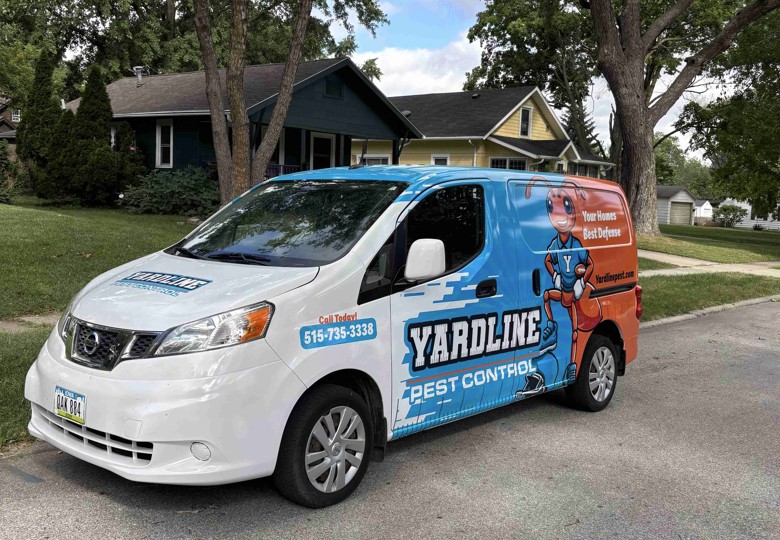Understanding the Costs of Starting a Lawn Care Business

Starting a lawn care business offers an in-demand career for those who like to work outside and maintain lush, green lawns. Running your own business gives you independence and the potential to make a lot of money.
As with starting any business, you need capital to pay for licensing and permitting, equipment, personnel, and other expenses. If you’re planning to launch your own lawn care business, you may be wondering how much it will cost.
The following guide examines the cost of starting a lawn care company, broken down by equipment, vehicles, operational expenses, marketing, and more.
How Much Does It Cost to Start a Lawn Care Business?
When determining the estimated cost of starting a lawn care business, you’ll need to consider several factors, such as operational and equipment costs, and costs for marketing your services and covering liability insurance.
The following table provides an estimation based on hiring one employee and purchasing a new vehicle. It’s essential to note costs will fluctuate widely based on several factors, including the region where you start the business, the number of techs you hire, the amount and quality of equipment, and more.
Expense Type | Cost |
Lawn care equipment | $2,940 to $7,550 |
Work vehicle (and trailer) | $59,800 to $86,500 |
Business registration | $250 to $650 |
Insurance | $1,800 to $2,200 |
Marketing | $2,490 to $24,250 |
Operational expenses | $52,680 to $102,360 |
Bookkeeping | $360 to $2,400 |
Total | $120,320 to $225,910 |
Note: All pricing found via Google. Prices will fluctuate significantly.
Initial Investments and Equipment
Before we dive into the costs of purchasing general liability insurance and registering a business, let’s explore some of the initial business expenses and equipment costs for starting a lawn care service.
Essential lawn care equipment
Purchasing the right equipment proves essential for starting a new lawn care business. However, the amount and type of equipment will vary depending on the size and scope of the business. For instance, a push mower may suffice if you only maintain small spaces. More than likely, you’ll benefit more from riding or stand-on mowers. You’ll need far less equipment to operate a small business versus a commercial lawn care business.
Either way, you’ll certainly need the following lawn tools:
Commercial-grade lawn mower: $2,500 to $5,000
String trimmer or weed eater: $50 to $250
Edger: $40 to $150
Leaf blower: $30 to $350
Rake: $20 to $50
Spreader: $50 to $250
Snow blower (for snow removal during the offseason): $250 to $1,500
TOTAL: $2,940 to $7,550
You may need additional equipment, especially if you provide landscaping services, such as mulch, pesticides, and hedge trimmers.
Work vehicle (and trailer)
Your lawn care operation needs reliable transportation to travel to the job site and haul necessary equipment. In most cases, you’ll need a pickup truck or work van and a pull-behind trailer to carry lawnmowers and other large tools.
For this example, we’ll examine the cost of purchasing a pickup truck. If your business requires multiple vehicles and trailers, multiply the following costs by the number of vehicles you need.
Pickup truck: $59,000 to $80,000
Trailer: $800 to $6,500
TOTAL: $59,800 to $86,500
You’ll also need to pay for fuel costs once you launch the lawn care or landscaping business. Make sure to set aside an extra budget for fuel costs.
Business Registration and Legal Costs
When starting a new business, lawn care business owners must comply with specific regulations regarding financial reporting, tax obligations, or employment rules. Many of these business startup processes include registration fees. You may incur additional costs if you hire a consultant to help you create a business plan.
Choose business structure: Sole proprietorship, Partnership, Limited Liability Company (LLC), or Corporation are the four most common types. Registration cost: $100 to $300, depending on business model and location.
Register business name: Business owners typically register their business names with the Secretary of State as an entity, trademark, or doing business as (DBA). Registration cost: $100 to $300, depending on business structure and location.
Apply for commercial fertilizer applicator license: Most states require a license or certification for the commercial application of fertilizers. Cost: $50
Apply for federal tax ID number: Your Employer Identification Number (EIN) allows you to hire employees, comply with federal tax obligations, and open a business bank account and credit card. Cost: Free at IRS.gov.
TOTAL: $250 to $650
Insurance and Bonding
Running a successful lawn care business requires obtaining a couple of types of insurance to protect your business and assets, cover employee injuries while on the job, and pay for any damages to a customer’s home or property caused by your employees. Many states require businesses to carry insurance, and many potential customers only hire lawn care or landscaping professionals who can demonstrate proof of bonding and insurance.
Common types of business insurance include:
Liability insurance: Liability insurance provides financial protection to individuals or businesses by covering the costs associated with legal claims and damages caused by the employee. Cost: $1,000 to $1,200 per employee per year.
Workers’ compensation insurance: Workers' compensation insurance is a policy that provides financial compensation and medical benefits to employees who are injured or become ill due to their job duties while also protecting employers from potential lawsuits related to workplace injuries. Cost: $800 to $1,000 per employee per year.
Bonding: A surety bond is a financial guarantee or surety provided by a third party to ensure the completion of a contract or to cover potential losses or damages in case of non-performance by one of the parties involved. Cost: Prices vary based on several factors, including the total amount of the bond, location, and number of employees.
TOTAL: $1,800 to $2,200
Marketing and Advertising
There’s serious competition in the lawn care industry, and business owners rely on marketing and advertising strategies to acquire new customers, grow their businesses through brand recognition, and promote available services like lawn maintenance, lawn treatments, and seasonal offerings.
Lawn care professionals typically work with marketing agencies or leverage in-house talent to plan and execute marketing campaigns.
Some common (and inexpensive) marketing tactics include:
Promotions on social media platforms: Cost: Free
Word-of-mouth referrals: Cost: Free
Business cards: Cost: $15 to $100 for 1,000 business cards
Signage, such as door hangers. Cost $75 to $150 for 1,000 door hangers
Digital marketing: Cost: $2,400 to $24,000 annually
TOTAL Cost: $2,490 to $24,250 annually
The savviest lawn care entrepreneurs also meet their customers online by utilizing a mix of digital marketing strategies to maximize results and grow profit margins, such as email marketing, search engine marketing, content marketing, and more.
An end-to-end marketing solution, such as the FieldRoutes® Marketing Suite, simplifies lawn care and landscaping marketing by streamlining website design, SEO, online ads, content creation, and campaign reporting — all in one place.
While purchasing marketing and field management software adds to your expenses, the time saved from manual processes and the real-time insights gleaned from the reporting dashboard make it worth the investment.
Operational Expenses
Now that we’ve covered some of the initial startup costs for starting a lawn care or landscaping company, it’s important not to overlook operational expenses, which include the regular payments you make to keep the lights on, cover the salaries of full-time employees and fuel costs, as well as other routine expenses.
Understanding your actual operational costs also makes it easier to determine the right price to charge for lawn mowing and other services.
Note: Operational costs fluctuate widely based on company size, location, and other factors. These figures provide an estimate.
Operational costs may include:
Technician salary: $33,280 to $45,760 per employee per year ($16 to $22 per hour)
Fuel costs: $5,000 per truck per year
Utilities: $2,400 to $3,600 per year
Rent: $12,000 to $48,000 per year
TOTAL: $52,680 to $102,360
To better manage operational expenses, lawn care companies frequently turn to field management software. The technology helps companies work smarter and save on operational costs by optimizing routing to minimize drive time and fuel consumption.
Additionally, the software helps lawn care businesses track technician performance, communicate from the field via mobile devices, and accept online or mobile payments.
Again, adopting field management software will initially increase operational expenses. Still, the time you’ll save from manual processes and the ability to monitor performance will help you save money in the long run.
Basic Bookkeeping System
To operate profitably, it’s paramount for lawn care companies to maintain accurate record-keeping, track income and expenses, and monitor cash flow in real time. While manual accounting processes indeed work, they’re prone to user error and waste time.
To streamline accounting, modern lawn care shops frequently turn to bookkeeping software as a standalone tool or a feature of a comprehensive field management solution.
QuickBooks Online: Cost: $360 to $2,400 per year, depending on the plan.
Modern field management software like FieldRoutes integrates with common bookkeeping tools like QuickBooks. The software connects all of your financial data and updates it in real-time whenever a customer makes a payment or when you need to purchase new equipment. It also tracks technician hours, so your payroll is always accurate.
Ready to Kickstart Your Lawn Care Business?
Starting a new lawn care business includes considerable startup costs. Still, the revenue you generate from quality work and excellent customer service can help your company recoup these costs quickly.
FieldRoutes helps lawn care businesses automate their processes to streamline scheduling, routing, billing, and customer management. It also integrates key marketing tactics to generate more business and bookkeeping software to ensure accurate accounting and financial records.
Ready to take the next step to grow your business? Schedule a demo today.





